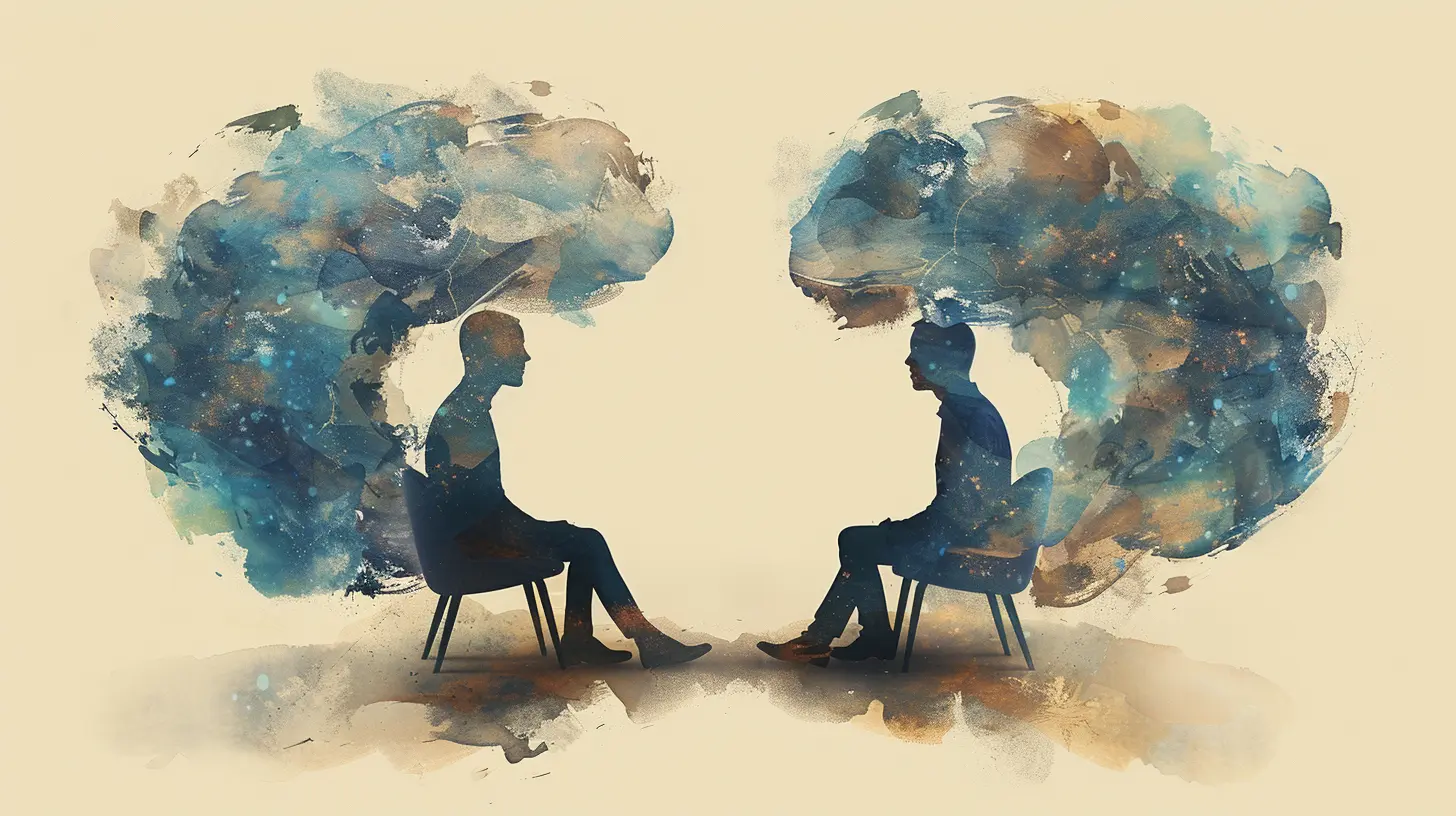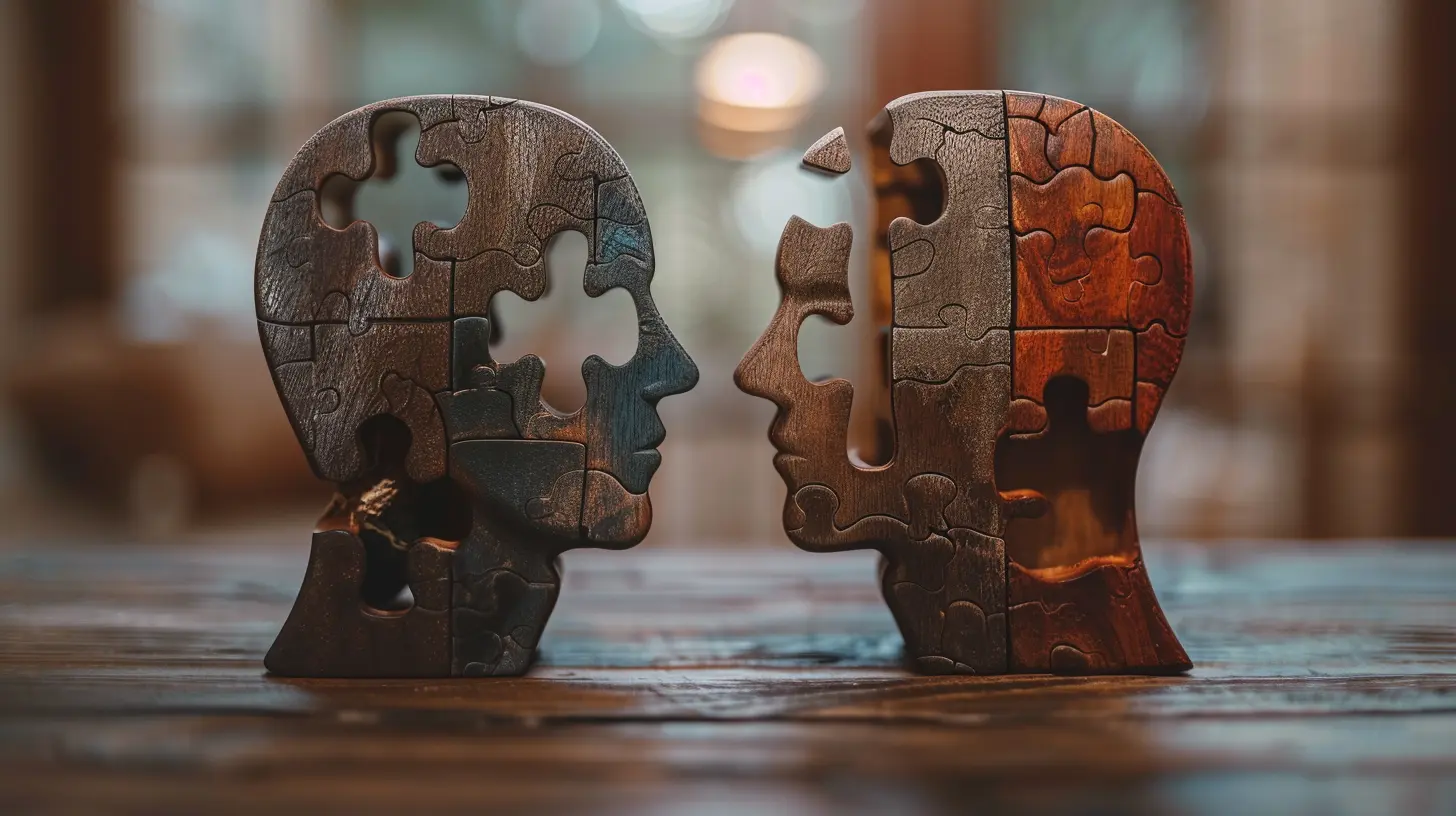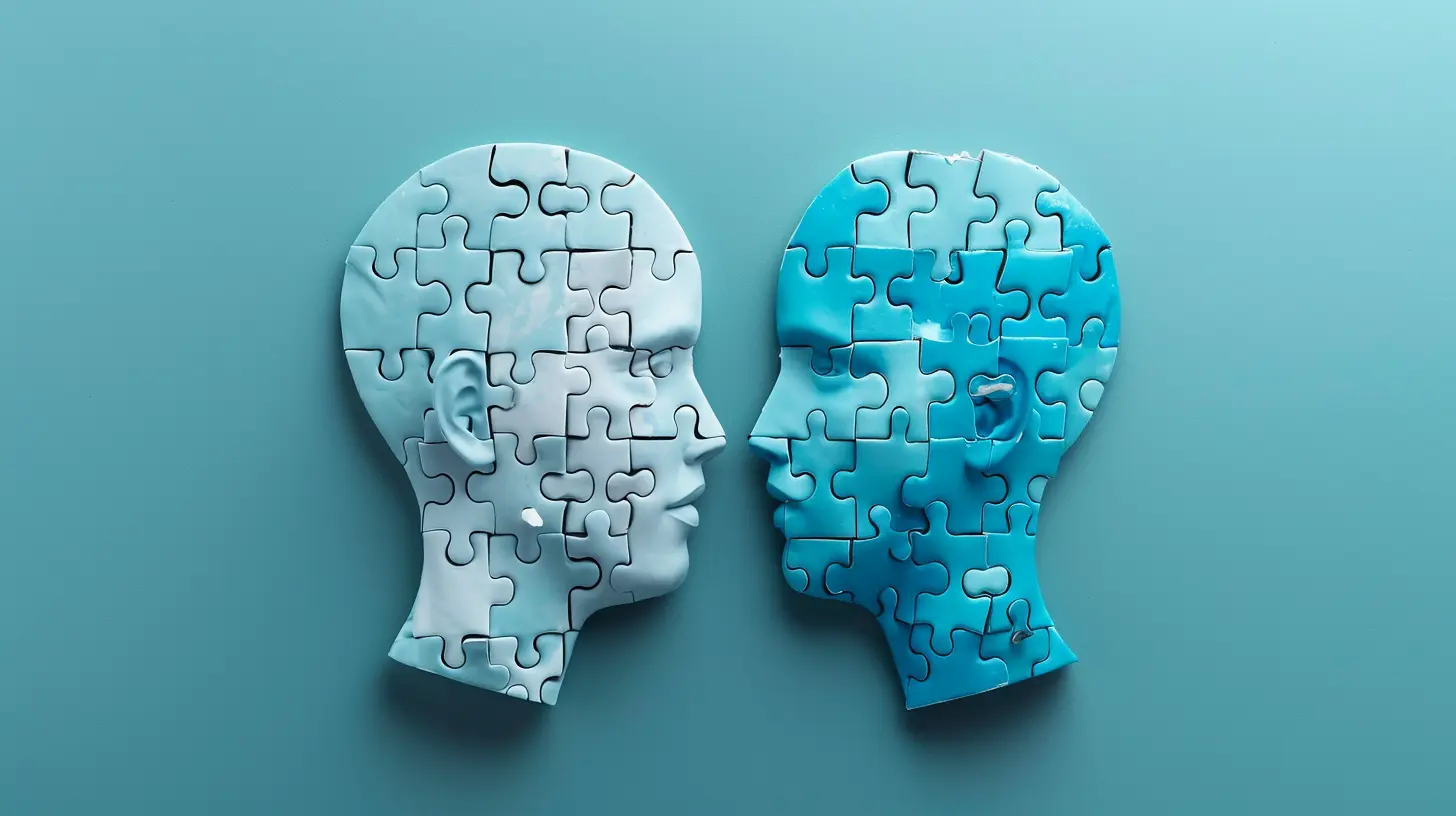How Peer Support Can Improve Mental Health Outcomes
17 November 2025
Mental health—it’s something we all have, right? Some days are good, some are meh, and others feel like a mountain you weren’t ready to climb. The thing is, we’re not meant to face it all alone. Whether you’re going through anxiety, depression, trauma recovery, or just everyday stress, the road gets a lot smoother when someone walks it with you. That’s where peer support comes in.
Let’s dive deep into how peer support can improve mental health outcomes, and why it might just be the missing puzzle piece in modern mental health care.
🌱 What Is Peer Support Anyway?
Put simply, peer support is emotional and practical help from someone who's been there. We’re talking about people who’ve faced mental health challenges themselves and understand what it’s like from the inside out.Unlike therapists or clinicians, peer supporters aren’t medically trained professionals. They’re real people with real experiences who choose to use their stories to support others. Think of them as mental health “battle buddies.”
They get it—not because they’ve studied it, but because they’ve lived it.
🧠 The Power of Shared Experiences
You know when you’re telling someone your struggles and they go, “Yeah, I've been there too”? That feeling right there? That’s connection. That’s validation. That’s what builds trust.Peer support revolves around the idea that healing isn’t just about treatment—it’s about connection, understanding, and community. When someone says, “I’ve felt that way too,” it reduces isolation. Suddenly, you're not broken. You're just human.
And let’s be honest—we all want to feel seen.
🤝 It’s Not Therapy… But It Helps Like Crazy
Now, don’t get it twisted. Peer support isn’t a substitute for therapy or medication. But it’s a powerful companion to those tools. Where therapy might focus on analyzing patterns and medication works on neurochemistry, peer support hits you in the heart. It’s emotional CPR.Peer support can:
- Boost self-esteem
- Improve coping skills
- Reduce hospital readmissions
- Encourage treatment adherence
- Provide a sense of hope
When you blend clinical support with peer connection? That's a mental health power combo.
💬 Real Talk: Why Peer Support Works
Let’s break this down. Why does peer support work so well?1. It Fosters Safety Without Judgment
There’s a special kind of safety in talking to someone who doesn’t just “get it” from a textbook but from raw experience. You're free to speak your mind without fear of being labeled or judged.Ever felt like a therapist just didn’t fully get your struggle? Peer support bridges that gap beautifully. It’s like sitting across from someone who’s walked through your storm with their own umbrella.
2. It Reduces the Stigma
One of the biggest barriers to seeking help is shame. You start wondering, “What’s wrong with me?” But talking to someone who’s gone through similar stuff helps chip away at that shame. It normalizes the conversation around mental health.Suddenly, asking for help isn’t weakness—it’s wisdom.
3. It Offers Real-Life Coping Strategies
Peer supporters don’t just offer a shoulder to lean on; they often come loaded with coping tools, tips, and tricks they’ve picked up from lived experience. These are not clinical instructions—they’re tried-and-tested real-world hacks.From journaling techniques to grounding exercises, it’s stuff that’s practical and immediately useful.
4. It Builds a Sense of Hope
Hope isn’t some fluffy concept. It’s the fuel that keeps us moving forward. Meeting someone who’s been where you are and made it through? That’s proof that healing is not just possible—it’s probable.Hope is contagious, and peer supporters are hope-carriers.
🏥 Peer Support in Clinical Settings
Guess what? Hospitals, rehab centers, and mental health clinics are finally waking up to the value of peer support. In fact, many now hire Certified Peer Support Specialists—trained individuals with lived experience of mental health or substance use challenges.These peer workers are becoming integral parts of healthcare teams, helping patients navigate the system, understand their diagnosis, and stay motivated to engage with treatment plans.
Fun fact: Studies show that patients supported by peers are less likely to drop out of treatment and more likely to reach recovery milestones.
🌍 Peer Support in the Community
Not all peer support happens in hospitals or clinics. Grassroots community groups, online forums, and even social media are filled with peer-led spaces promoting mental wellness.Whether it's a local depression support group or an Instagram live hosted by a mental health advocate, these communities are often the first step for someone unsure about seeking professional help.
Sometimes, peer support starts with a simple comment: “I’ve been through that, and I’m here for you.”
🧘♂️ Personal Empowerment Through Peer Support
Here’s the magic sauce: peer support empowers people. It shifts the narrative from passive patient to active participant in their own recovery.Instead of being told what to do, you get to collaborate, exchange ideas, and co-create recovery goals. That’s huge. It gives people agency—and let’s face it, when you feel empowered, your outlook on life changes.
You stop surviving. You start thriving.
💡 Authentic Relationships = Better Outcomes
Let’s talk numbers for a sec (don’t worry, we’ll keep it light). Research shows that peer support can lead to:- 50% increase in treatment engagement
- 30% reduction in hospitalization rates
- Improved relationships and social functioning
- Higher self-efficacy
All of this contributes to better mental health outcomes. But beyond stats, the real takeaway is this: human connection heals. When we reach out, we rise up—together.
🤯 The Ripple Effect of Peer Support
You know what’s even cooler? Peer support isn’t just a one-way street. The person offering support often grows just as much as the one receiving it.It creates a ripple effect. One person’s healing spills over into others. Communities grow stronger. Stigma fades. Mental health becomes something we all care about—not just because it's the “right thing” but because we’ve felt the impact firsthand.
💬 Real People, Real Stories
Let me introduce you to Jess. She struggled with bipolar disorder for over a decade. In and out of hospitals, she lost hope more times than she could count. One day, she joined a peer-led support group at her local community center.“It was the first time I felt like I wasn’t crazy,” she said. Today, Jess is a certified peer support specialist, leading sessions for those navigating their own diagnoses.
That’s the power of peer support. It transforms survivors into supporters. And that’s some full-circle healing.
🌟 The Future of Mental Health Is Peer-Powered
As mental health conversations become more mainstream (finally), peer support is stepping into the spotlight. And honestly—it’s about time.We’re moving from treating symptoms to nurturing souls. From cold, clinical care to warm, authentic relationships. Mental health isn’t just about fixing what's broken. It’s about connecting, growing, and becoming.
Peer support is a reminder that none of us are alone.
💬 How You Can Get Involved
Thinking about getting or offering peer support? Here are a few ways to dive in:- Join a support group: Look for local or virtual groups that focus on your area of struggle.
- Follow peer advocates online: Social media has incredible mental health communities.
- Become a peer specialist: If you’ve overcome challenges, you can use your journey to help others.
- Just talk: Start conversations in your circles. You never know who might need to hear, “I’ve been there too.”
🧭 Final Thoughts: We’re All in This Together
Look, life is hard. Mental health challenges can feel isolating, overwhelming, and downright cruel. But when someone reaches out their hand—not from above, but from beside you—it changes everything.Peer support isn’t a miracle cure. It’s better. It’s real. It’s human. It reminds us that we heal better together than we ever could alone.
So whether you're seeking support or thinking about giving it, know this: your story has power. And when shared, it can change lives—including your own.
all images in this post were generated using AI tools
Category:
Mental Health AwarenessAuthor:

Eliana Burton
Discussion
rate this article
1 comments
Berenice Carr
Peer support is a powerful catalyst for healing! By fostering connections and understanding, we not only uplift ourselves but also create a community of resilience. Together, we can transform mental health journeys into stories of hope and strength!
November 19, 2025 at 4:29 PM

Eliana Burton
Absolutely! Peer support plays a crucial role in mental health by building connections and fostering resilience, transforming individual journeys into collective stories of hope. Thank you for highlighting its impact!


